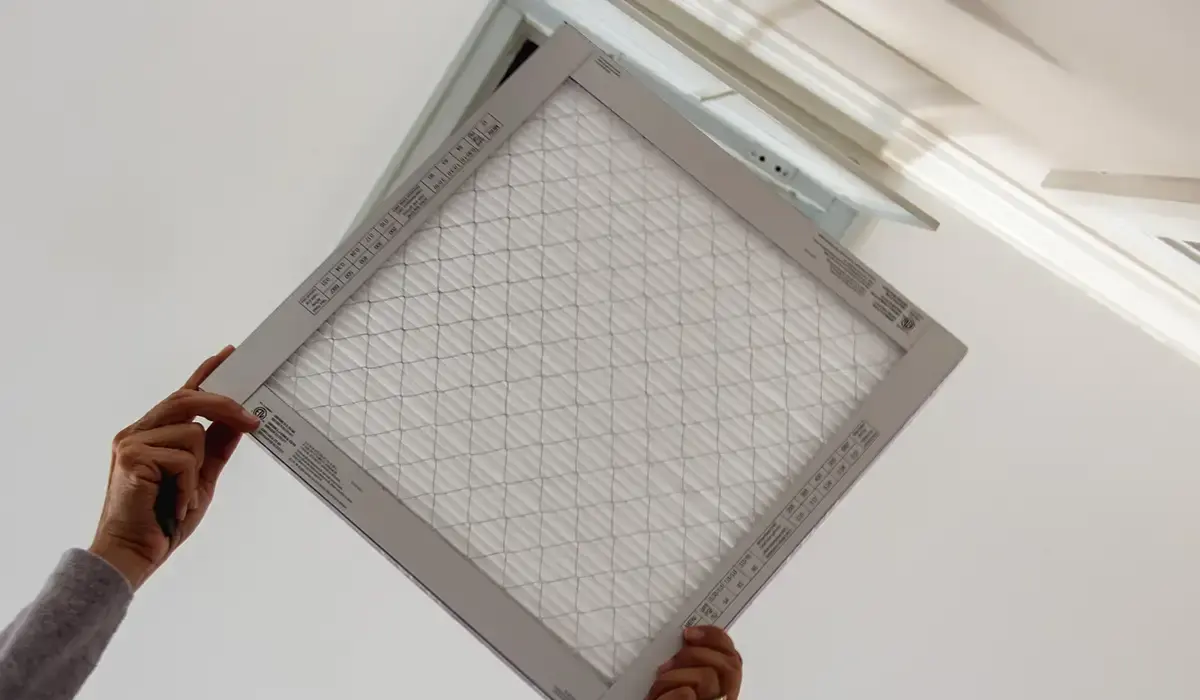Heating and Cooling
When to Replace Air Filters for Cleaner Air and Lower Energy Bills

How to Follow an Optimal Air Filter Schedule for a Healthier Home
Air filters are often overlooked, yet they play a critical role in keeping your home’s air fresh and breathable.
Without a routine schedule, dirty air filters can reduce your HVAC system’s efficiency and compromise your family’s health and comfort.
Maintaining a consistent air filter replacement schedule helps extend your HVAC unit’s lifespan and ensures superior air quality all year long.
Why Air Filter Maintenance Should Be Part of Your Routine
Air filters trap harmful pollutants like dust, pollen, pet hair, and mold spores before they reach your living environment.
Over time, filters become clogged, losing their ability to catch additional contaminants and allowing irritants to recirculate.
That leads to poorer indoor air quality and increases allergy or asthma symptoms for people living in the home.
Moreover, clogged filters force your HVAC system to work harder, using more energy and increasing your utility bills.
Changing your filters routinely can keep your system running efficiently and prevent avoidable wear and tear.
Understanding the Optimal Air Filter Schedule
You should ideally follow an Optimal Air Filter Schedule to avoid both air quality issues and equipment problems.
Most professionals recommend changing standard air filters every 90 days under normal living conditions.
Brandon Dolan of Dolan Inc. advises a minimum of every three months for homeowners with average system usage.
However, experts suggest swapping filters monthly during extreme seasons like winter and summer when HVAC use spikes.
Factors That Affect Filter Change Frequency
Your home’s air quality needs vary depending on several lifestyle and environmental factors.
Homes with pets accumulate more hair and dander, which clogs filters faster and requires more frequent changes.
Similarly, large families generate more dust and skin particles, causing quicker filter buildup.
Even your specific HVAC unit impacts the Optimal Air Filter Schedule.
Advanced systems with electronic air cleaners may demand unique replacement cycles and filter types.
Always refer to your manufacturer’s manual for precise filter recommendations tailored to your system.
Step-by-Step Guide to Replacing Your Air Filter
Changing an air filter takes just a few minutes and helps maintain consistent airflow and clean air indoors.
1. Turn Off Your HVAC System
Always shut off the system before beginning any filter replacement to avoid spreading dust throughout the house.
2. Locate the Filter and Remove Cover
Most filters sit behind return vents or inside the HVAC unit itself—consult your manual if needed.
Carefully remove the vent or access panel and check the filter’s dimensions before buying a replacement.
3. Remove the Old Filter and Dispose
Gently slide out the dirty filter and place it in a trash bag to reduce the risk of dust escaping.
4. Insert the New Filter
Match the new filter size with the old one.
Insert the replacement in the correct direction using arrows printed on the filter frame.
5. Replace the Cover and Restart HVAC
Reinstall the vent or cover securely and switch the HVAC system back on when you’re finished.
Practical Tips to Maintain Your Optimal Air Filter Schedule
People often forget to change filters despite knowing it’s important, so reminders can help build consistency.
Use a digital calendar or smartphone alarm to mark each filter replacement day in advance.
Add a sticky note near your HVAC unit that includes the last change date for easy reference.
You can also store spare filters nearby to make each replacement faster and more convenient.
The Optimal Air Filter Schedule isn’t one-size-fits-all—but setting up a routine based on your home’s needs makes all the difference.
Whether monthly or quarterly, staying ahead of filter changes ensures a cleaner, more energy-efficient home environment.
Final Thoughts
Maintaining clean air filters is one of the simplest ways to improve your home’s air quality and HVAC performance.
By understanding your home’s needs and following an Optimal Air Filter Schedule, you can reduce health risks and save energy.
Explore more home maintenance tips and news by visiting other helpful articles on this website.
